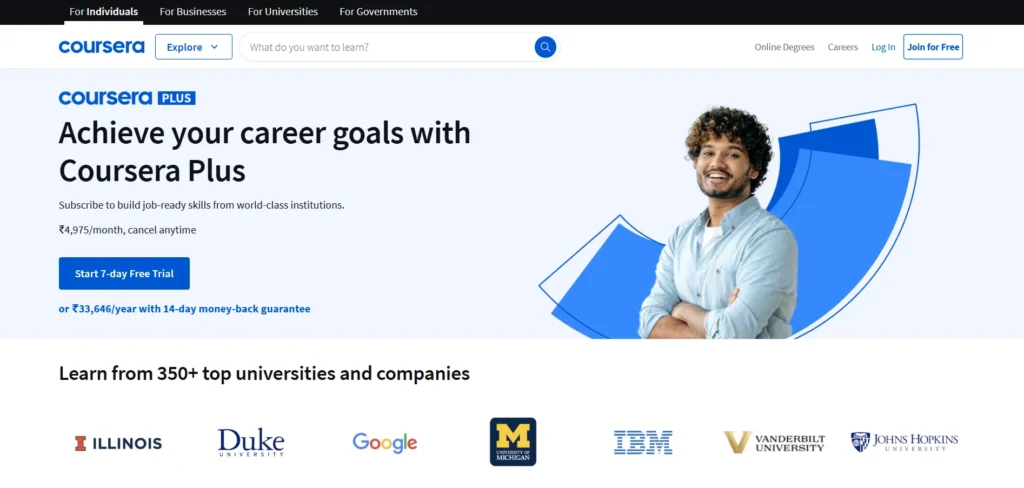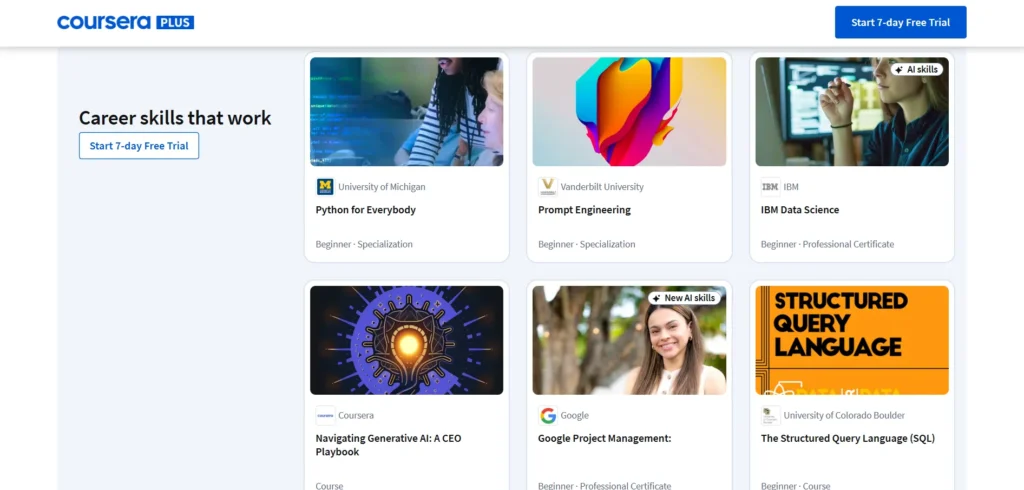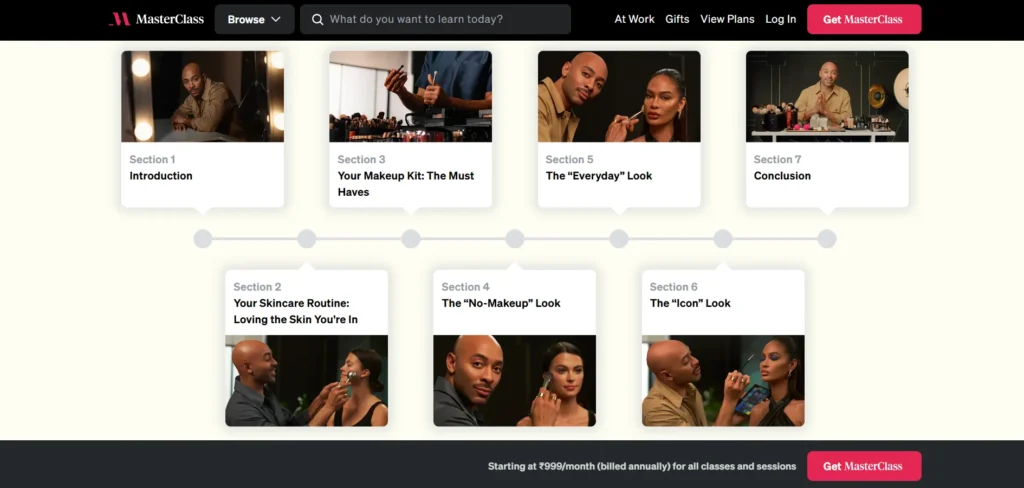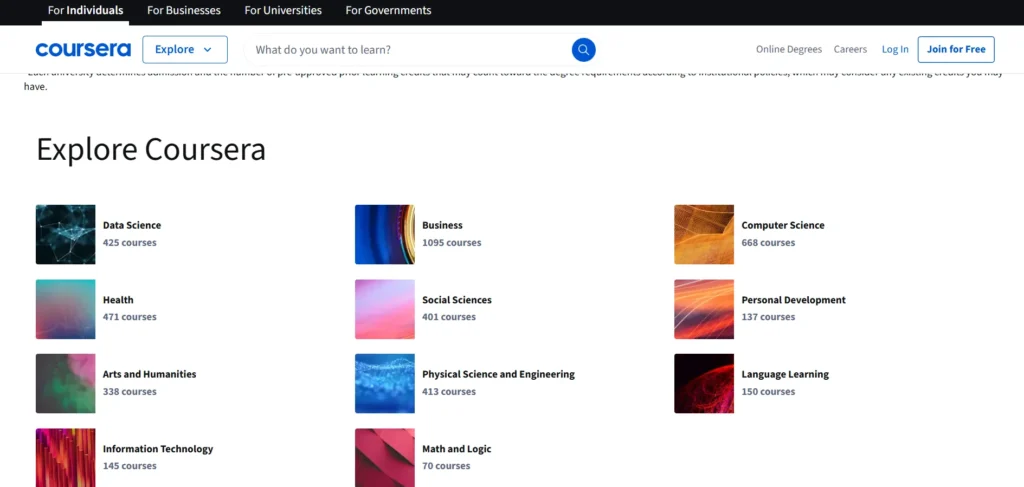In today’s digital world, online learning platforms have become a go-to option for anyone looking to expand their knowledge, develop new skills, or pursue personal and professional growth. Among the top players in the field are MasterClass and Coursera, each offering unique learning experiences tailored to different needs and goals.
MasterClass stands out for its high-production value courses taught by celebrities and industry experts. It’s designed for those who want to learn from the best in creative fields like filmmaking, writing, cooking, and music. The courses are more about inspiration and practical insights from leaders in their fields, offering a personal and engaging experience.
On the other hand, Coursera provides a more traditional learning approach with a wide variety of academic subjects and certifications. It partners with top universities and organizations to offer courses that range from beginner to advanced levels, with an option to earn professional certificates or even degrees. Coursera is ideal for those looking for formal education and skills development.
In this article, we’ll compare both platforms in terms of course offerings, instructor quality, structure, pricing, and more to help you determine which one provides the better learning experience.
1. Overview of MasterClass and Coursera
What is MasterClass?

MasterClass is an online learning platform known for offering high-quality courses taught by world-renowned experts in their respective fields. It focuses on providing personal insights, tips, and tricks from masters of their crafts, covering a wide variety of subjects like filmmaking, cooking, writing, and even science.
The platform features cinematic-style videos and allows learners to get close to the experts, learning from their personal experiences and expertise. MasterClass is more about inspiration and gaining practical knowledge from industry leaders, making it an ideal choice for creative professionals or anyone looking to gain new insights from the best in the business.
What is Coursera?

Coursera, on the other hand, is a much broader online learning platform that partners with universities, colleges, and organizations to offer academic courses. These courses cover a wide range of topics, including business, computer science, health, and humanities. Coursera provides more structured learning experiences and certifications, and many of its courses are part of degree programs or professional certificates.
Coursera is ideal for those looking for more formal education, especially if you want to gain skills in a specific field, earn a degree, or pursue professional certification. It offers flexible learning with more traditional educational frameworks, catering to a broader audience with varying academic and professional goals.
2. Course Offerings and Subject Variety
MasterClass Course Offerings

MasterClass is known for its unique approach to online education, with an emphasis on creativity, lifestyle, and personal development. The subjects available include art, music, writing, cooking, photography, business, sports, and more. However, it does not focus on traditional academic subjects or professional certifications.
Each course is taught by an expert who has made significant achievements in their field, offering a more hands-on and personal approach. Some notable instructors include chefs like Gordon Ramsay, actors like Samuel L. Jackson, and writers like Margaret Atwood.
MasterClass’s offerings are ideal for those interested in creative skills, self-improvement, and learning from the best in their industry. But if you’re looking for technical or academic knowledge, this may not be the right platform for you.
Coursera Course Offerings

Coursera offers a vast range of courses across almost every academic discipline, from artificial intelligence to history to business management. It is partnered with top universities such as Stanford, Yale, and the University of London, and it offers both free and paid courses. The courses range from beginner to advanced levels and can be taken individually or as part of a professional certificate or degree program.
Coursera also provides specialized learning tracks in fields like data science, computer programming, healthcare, and personal development, among others. The platform is a great choice for those who want to build specific career skills or pursue formal qualifications.
If you’re seeking a broad, academic approach with a formal educational framework, Coursera’s course offerings will likely be more aligned with your needs.
3. Instructor Quality
MasterClass Instructors
MasterClass’s standout feature is its instructors—well-known experts who are not only successful in their fields but are also highly engaging and passionate about sharing their knowledge. The platform features icons such as Serena Williams teaching tennis, Annie Leibovitz teaching photography, and Frank Gehry teaching architecture. The lessons are highly polished and cinematic, giving you an immersive experience that feels personal.
However, these instructors aren’t necessarily traditional educators. They may not have formal teaching experience, but their real-world expertise and ability to inspire and entertain make up for it. If you’re looking to learn practical tips from experts in their fields, MasterClass delivers.
Coursera Instructors
Coursera, on the other hand, partners with university professors, researchers, and industry experts who often have decades of experience in both academia and practical fields. Many of the instructors on Coursera are professional educators with formal teaching backgrounds and academic credentials. This makes the learning experience on Coursera more traditional and structured compared to MasterClass.
Coursera instructors may not be as high-profile as those on MasterClass, but they are often recognized for their academic achievements and teaching experience, making them highly qualified to teach complex subjects.
4. Course Structure and Learning Experience
MasterClass Structure

MasterClass courses are video-based, with each course consisting of several pre-recorded lessons. These videos often feature high production value and are highly visual, making the learning experience more engaging. The lessons are usually short and to the point, ranging from 10 to 20 minutes each, with accompanying assignments and downloadable materials.
While the courses are entertaining and offer a lot of practical tips, the structure is relatively informal compared to other platforms. MasterClass does not offer quizzes, exams, or interactive elements in the same way that other platforms do. The focus is on storytelling and knowledge-sharing rather than formal assessments.
Coursera Structure

Coursera courses are typically more structured and follow a university-style format. Each course has a syllabus, weekly lessons, readings, video lectures, and quizzes or assignments to reinforce learning. Coursera’s approach is more academic and focuses on assessing learners’ understanding of the material through assignments, projects, and sometimes exams.
For those who prefer a more traditional learning path with clear benchmarks and assessments, Coursera’s structured approach provides a more rigorous and comprehensive learning experience. Many courses also offer peer-reviewed assignments, where you can evaluate your fellow learners’ work, which adds an interactive component.
5. Certification and Credentials
MasterClass Certifications
MasterClass does not offer formal certifications. While you will gain insights and knowledge from the best in their fields, there is no official recognition of completing the courses. If you are looking to use your learning for professional growth or job advancement, MasterClass’s lack of certification might be a downside.
However, the real value of MasterClass lies in the knowledge you gain and the inspiration you get from top-tier professionals. It’s ideal for personal development, but not necessarily for building a formal career portfolio.
Coursera Certifications
Coursera offers both free and paid courses that lead to professional certificates, diplomas, or even degrees. Many of its courses are offered in partnership with universities, so upon completion, you can receive a certificate that is recognized by employers and educational institutions.
For learners looking to gain formal credentials or who want to demonstrate their expertise in a particular area, Coursera’s certification options provide more tangible benefits. It’s a great choice if you’re pursuing a career change, professional development, or a higher level of education.
6. Pricing and Value for Money
MasterClass Pricing
MasterClass operates on a subscription model. For a flat annual fee, you get access to all of the courses on the platform. The subscription cost tends to be on the higher side, but the value comes from access to world-class instructors across a wide range of subjects.
The benefit of this pricing model is that you can take as many courses as you want throughout the year. However, if you’re only interested in a few courses, the subscription might seem like a bit of an overinvestment.
Coursera Pricing
Coursera offers a mix of free and paid courses. The free courses generally provide access to course materials, but if you want a certificate or more in-depth learning, you’ll need to pay. Some courses are available for a one-time fee, while others operate on a subscription basis for longer programs like specializations or degrees.
For those who need formal certifications or are pursuing degrees, the costs can add up. However, Coursera also offers financial aid for those who cannot afford the courses, making it a more affordable option for a wider audience.
7. Usability and Accessibility
MasterClass Usability
MasterClass is designed with simplicity and ease of use in mind. The platform has a sleek, user-friendly interface, making it easy to browse through courses, watch videos, and access materials. However, since the platform is primarily video-based, it may not be ideal for those who prefer text-based resources or a more interactive learning style.
The mobile app is well-designed, allowing you to take your lessons on the go. You can also download courses for offline viewing, which is a nice feature for people who want to learn without internet access.
Coursera Usability
Coursera also has a user-friendly interface, though it is slightly more structured compared to MasterClass. The platform offers a variety of course formats, including video lectures, written materials, quizzes, and assignments. The learning experience is interactive, and learners can track their progress as they move through the course content.
Coursera is also available on mobile, with a well-optimized app that lets you take courses, complete assignments, and even watch videos offline.
Conclusion: Which is Right for You?
When to Choose MasterClass
If you’re looking to learn from the world’s best in creative fields like writing, cooking, acting, or music, MasterClass is an excellent choice. The focus is on inspiration and gaining practical insights from experts. It’s ideal if you’re looking to be motivated or gain creative skills, but not if you’re seeking formal credentials.
When to Choose Coursera
If you’re looking for structured learning with a focus on academic or professional development, Coursera is the better choice. It offers a wide variety of subjects, from business and data science to arts and humanities, with the option to earn certificates or even degrees. Coursera’s formal structure, assessments, and credible certifications make it a great choice for career-focused learners.
FAQs
Are MasterClass courses free?
No, MasterClass requires a subscription to access all of its courses.
Does Coursera offer free courses?
Yes, Coursera offers free access to course materials, though certification usually requires payment.
Can I get a job with a MasterClass course?
MasterClass doesn’t provide formal certification, so it may not directly help with job prospects, but it can help improve your skills.
Can I earn a degree from Coursera?
Yes, Coursera offers degree programs in partnership with universities.
Which platform is better for professional certifications?
Coursera is better for professional certifications and academic qualifications.